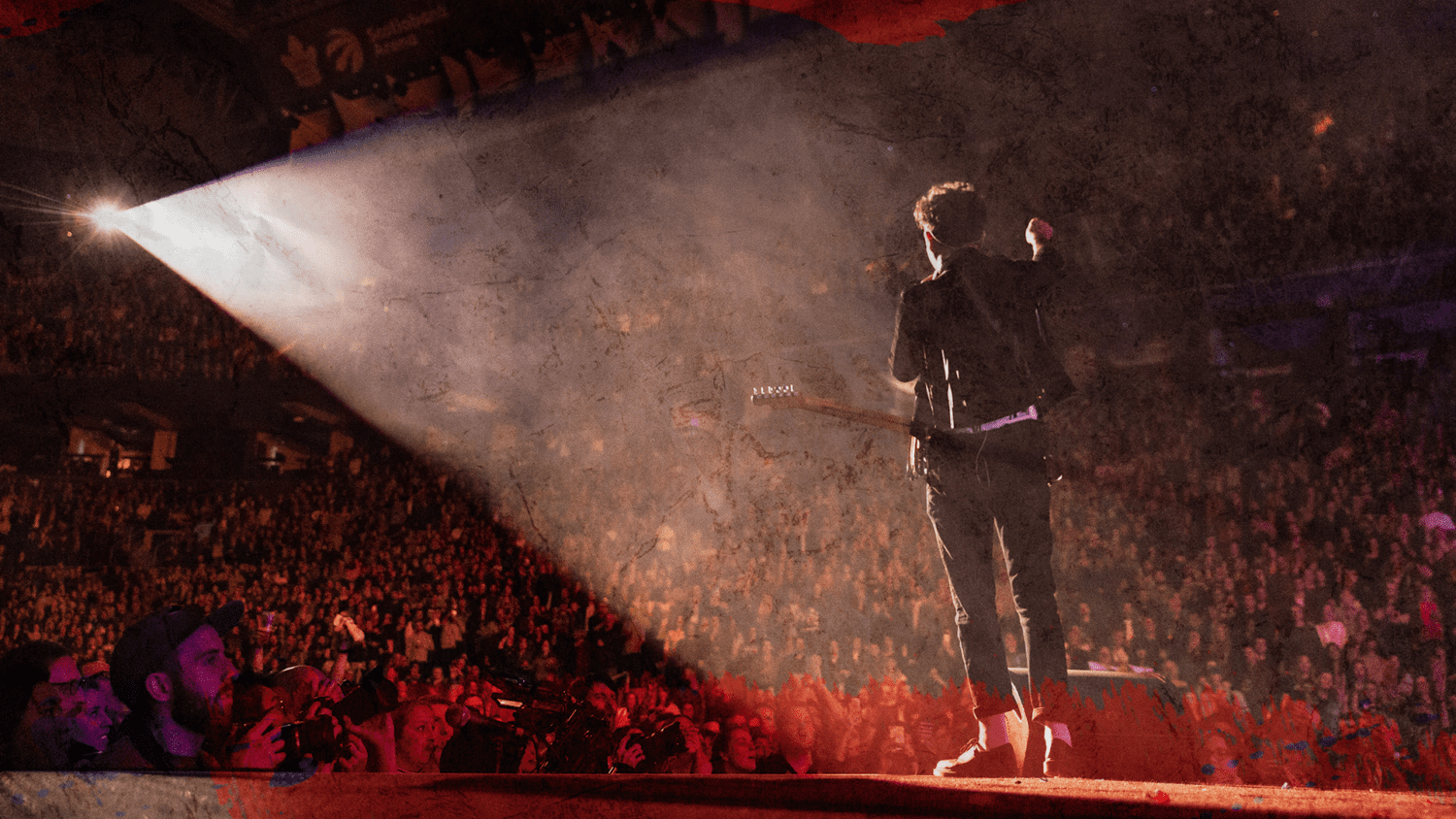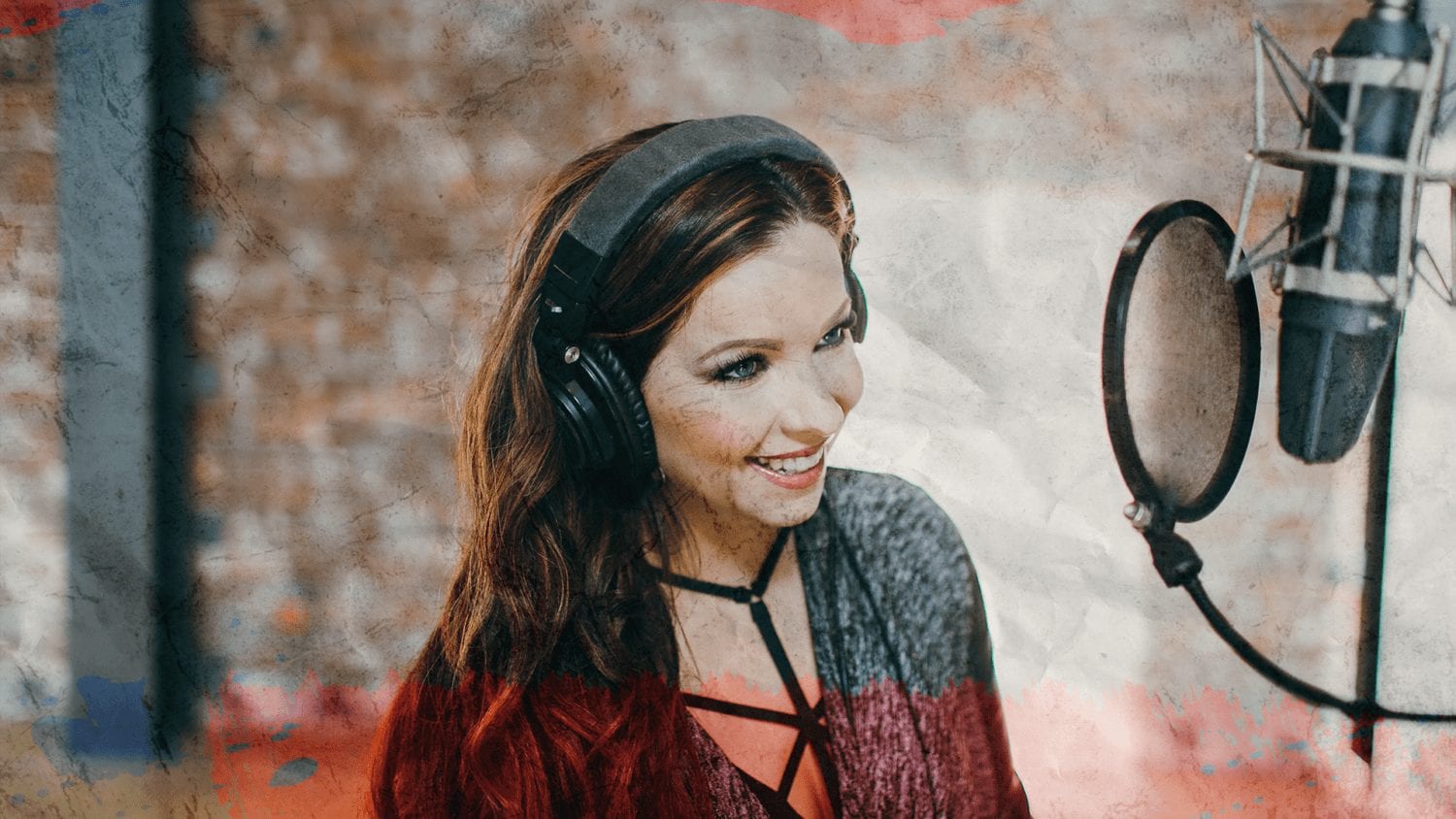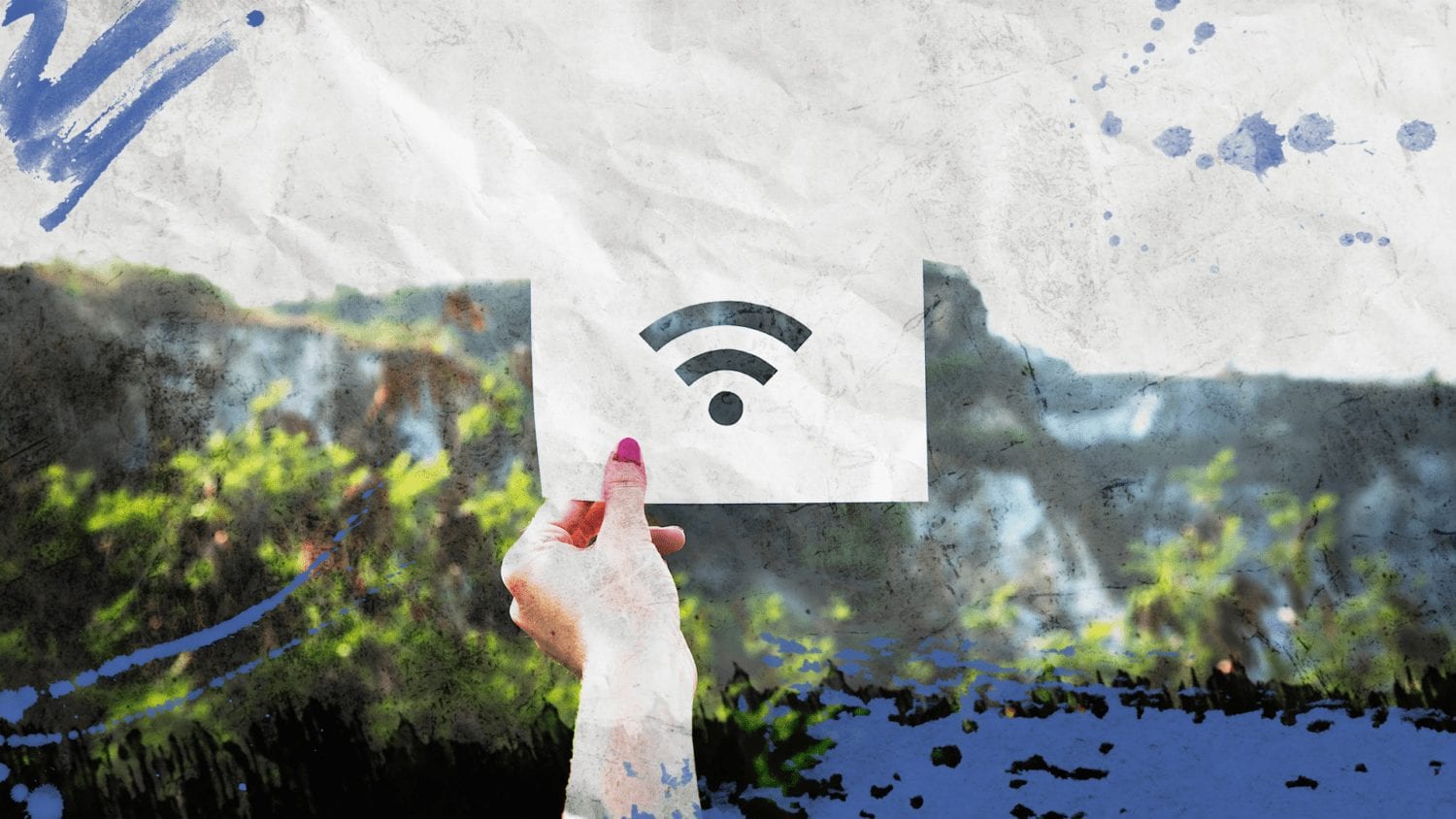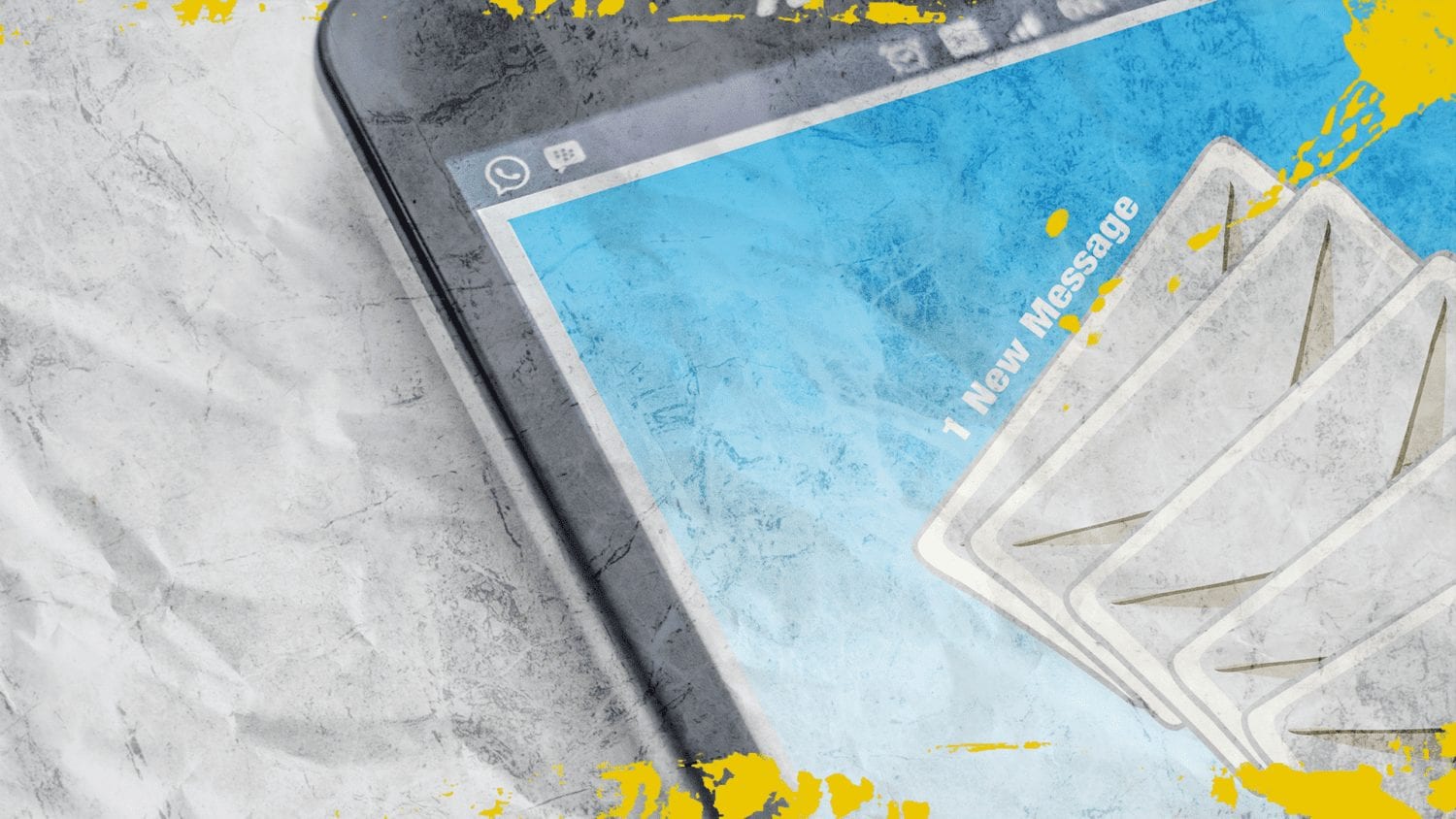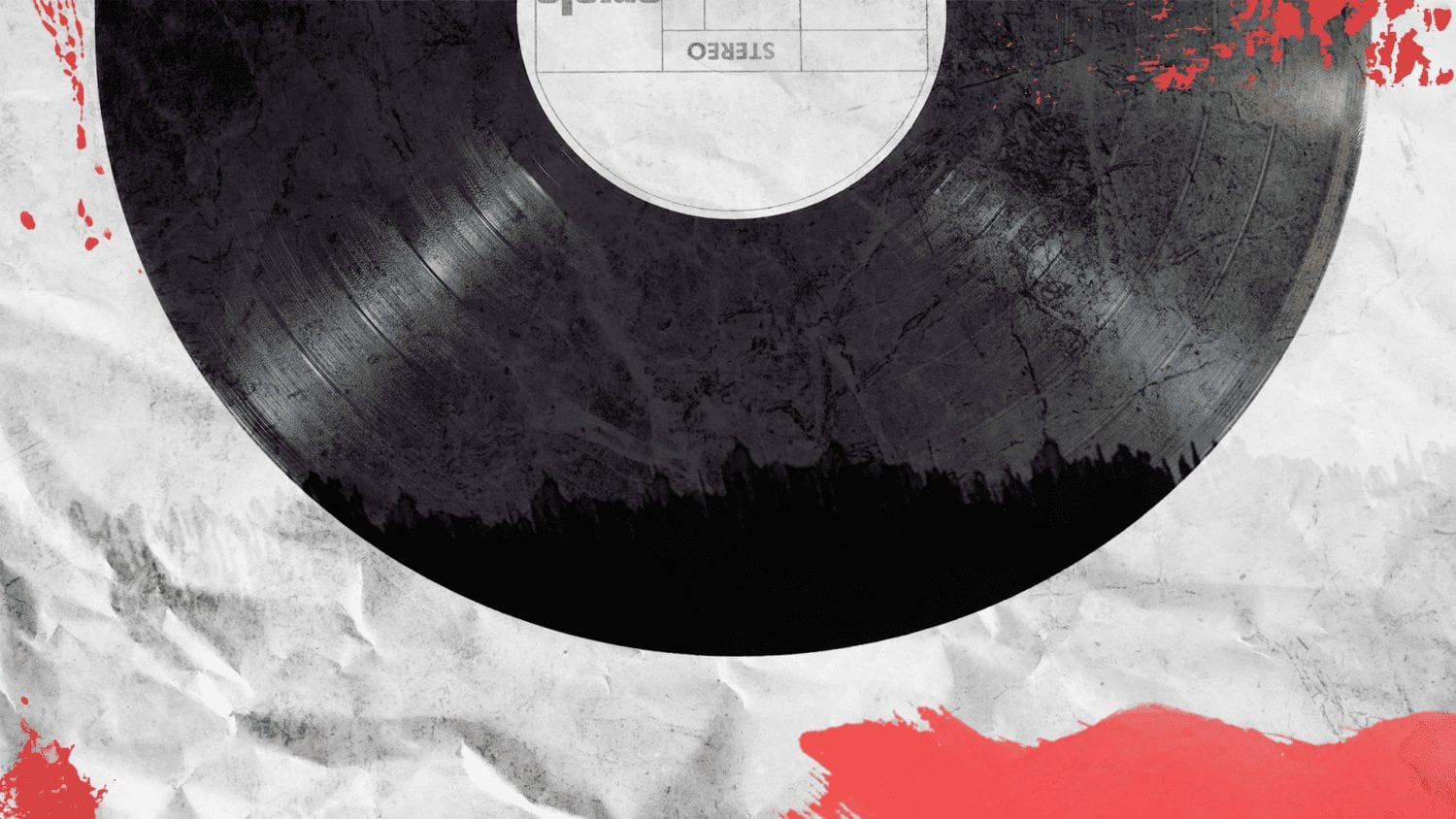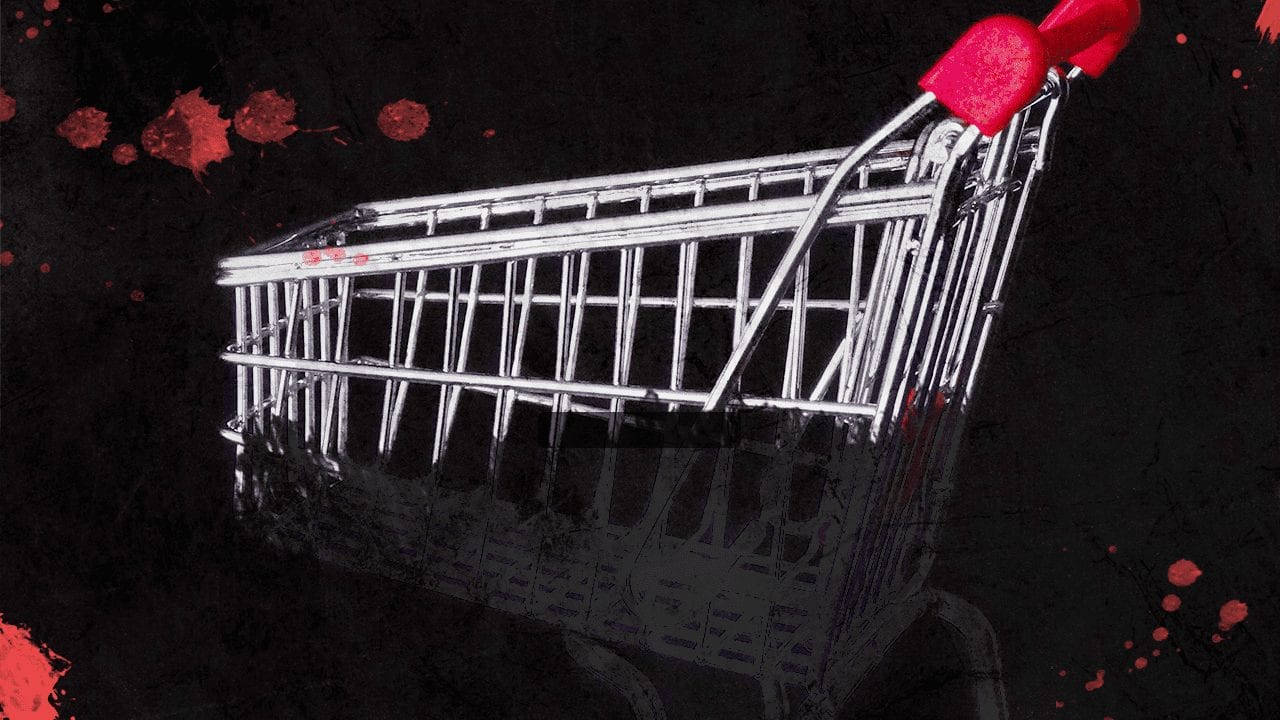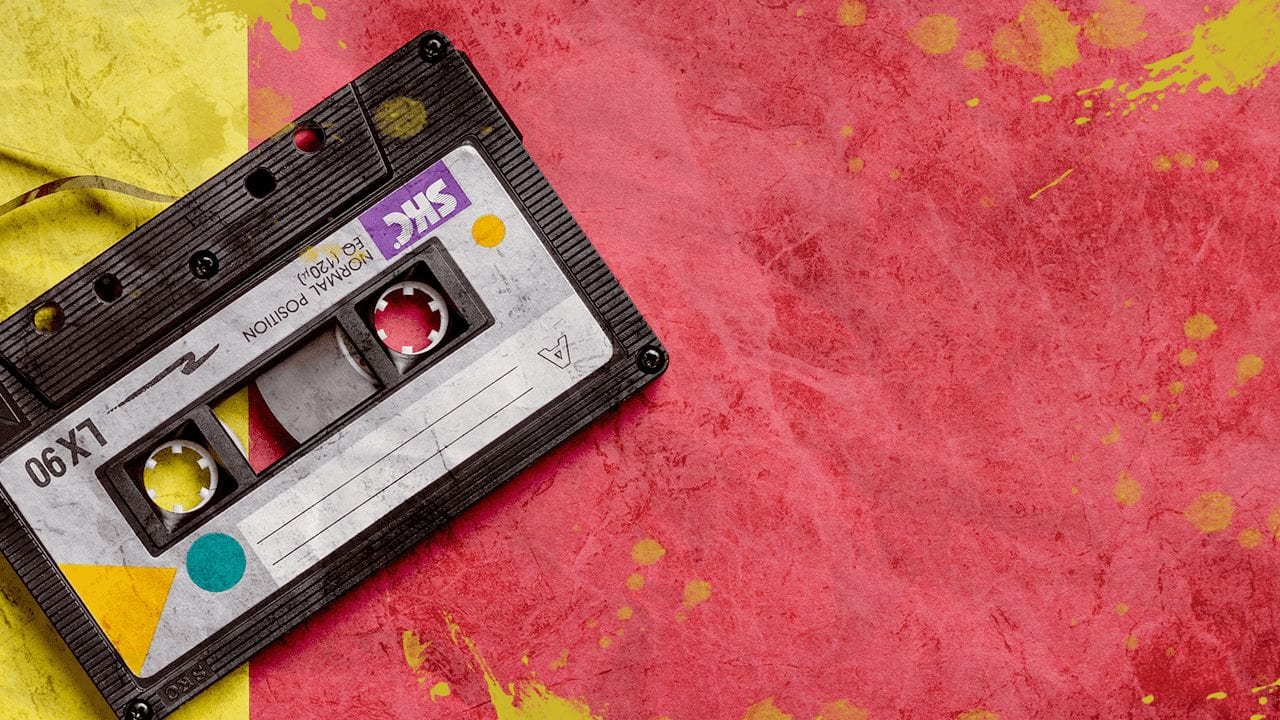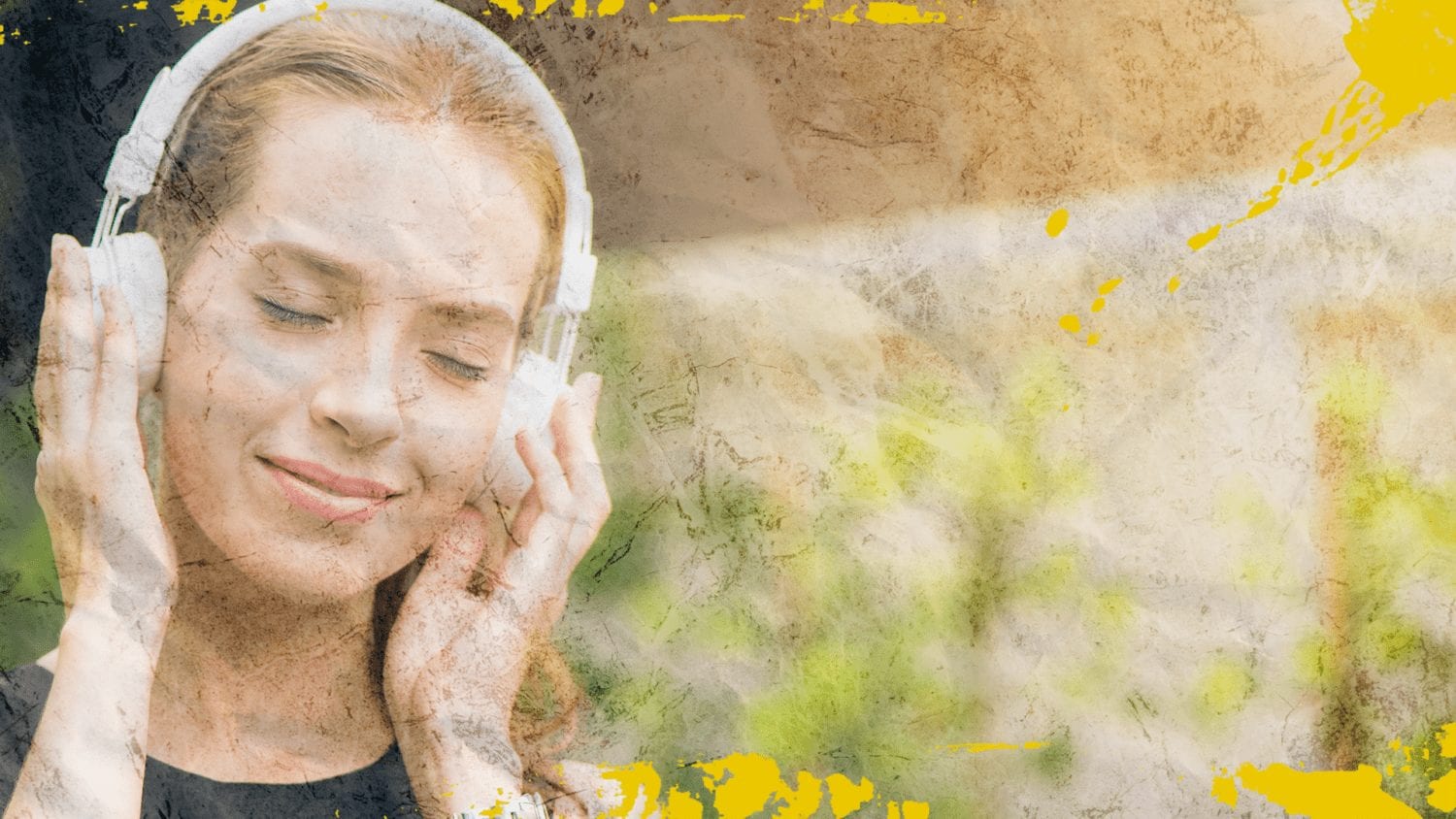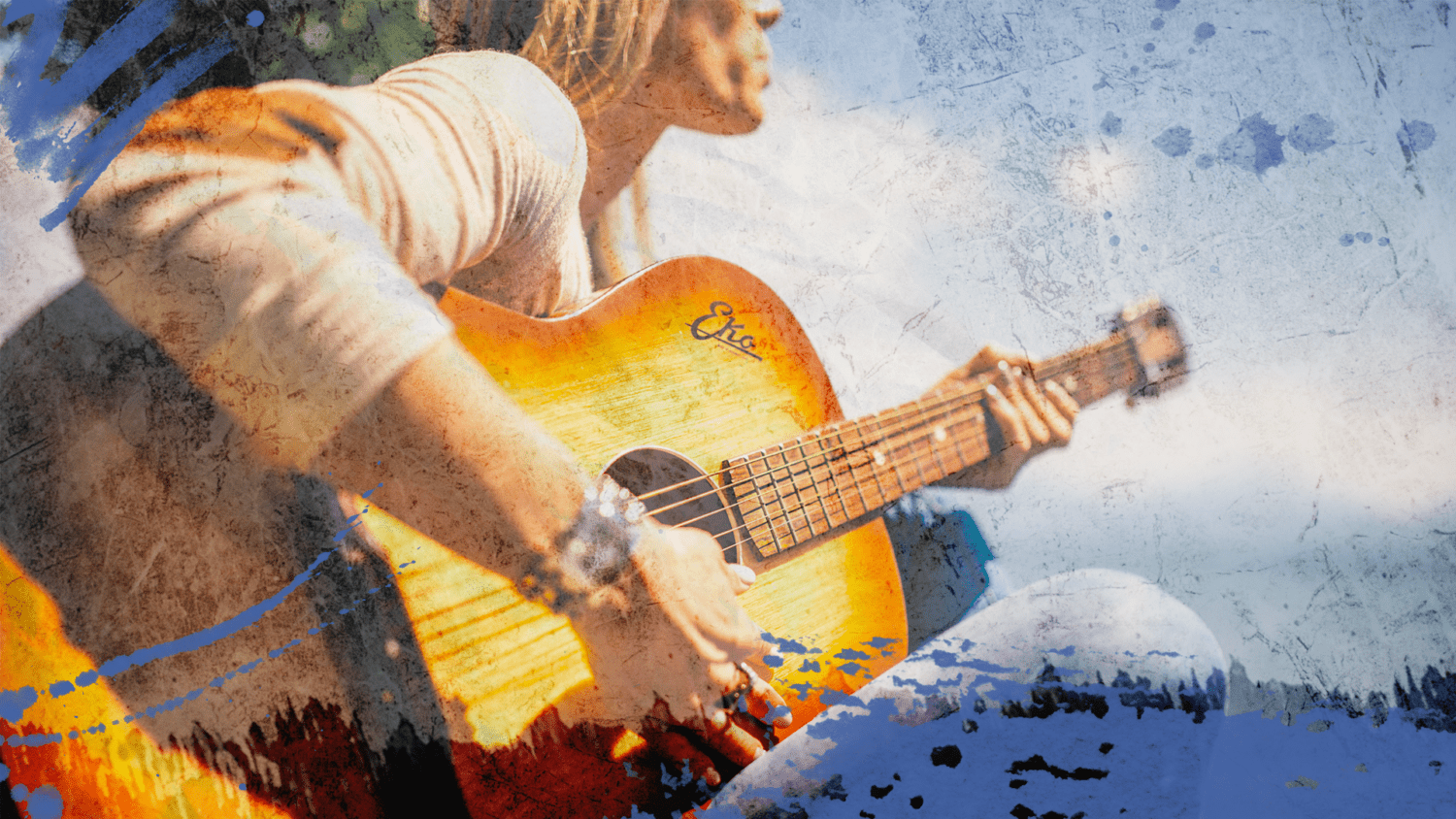
On today’s episode, Leah and CJ talk about the commonly faced dilemma of how to release an album when you don’t have fans yet and take you through some of the steps to build this fanbase. You have to have some music, even if it’s not professionally recorded, in order to engage and grab people’s attention in some way. There are so many free tools at your disposal that allow you to be creative when starting out, that a small budget should not stop you. Instead, you have to start by putting yourself out there, without waiting for what you have done to be perfect. People will be drawn in by real life, vulnerability and authenticity, rather than an overly polished person that is not easy to relate to. By being real, potential fans will feel involved in your life and much more likely to stick with you and show great loyalty throughout your career. Letting people into your life is not easy, but it is necessary to create a relationship and build rapport with your fan base. Once you have started putting yourself out there and begun to engage with people, it is important to use that momentum to actually record something professionally that fans can get their hands on and that you can use as a starting point for building your email list, your brand and your culture. To learn how to get started on all of this and more, join us today!
Key Points From This Episode:
- You have to start with some music in order to build a fan base.
- Some things you can do for free to generate a fan base.
- You don’t have to be perfect to release your music.
- Realness, rawness and authenticity are very relatable.
- What Leah does to let her fans into her life.
- Where to go after you’ve started building your fan base
- Why email lists are so important.
- How to start building your brand and creating culture after gaining fans.
- And much more!
Tweetables:
“You’re giving people a taste of something and they’re going to follow.” — CJ Ortiz [0:10:20]
“Let people fall in love with you.” — CJ Ortiz [0:33:48]
Links Mentioned in Today’s Episode:
Savvy Musicians Mastermind on Facebook — https://www.facebook.com/groups/savvymusician/
Book A Call With Our Team — www.callsma.com
Jessi Frey (student spotlight) — https://jessifrey.com/
Click For Full Transcript00:23 CJ: Welcome to The Savvy Musician Show. This is CJ Ortiz, and I am the branding and mindset coach for the Savvy Musician Academy, headed up by the lovely Leah McHenry, who is with me today again for Episode 50, Leah, your platinum episode.
00:39 Leah: Hey. Yeah, I’m so excited. I’m so glad that we’re doing these episodes weekly now. I mean, obviously we got to episode 50 a lot faster, but I had no idea if the podcast was even – if anyone was even going to listen to it when we first started it. I didn’t know, like are musicians even listening to podcasts? It was a bit of a test, but yeah, we’re getting increased downloads every single month. Thank you, guys, for subscribing. Thank you for leaving us reviews.
And we are starting some prizes, by the way, for people who leave us reviews. It’s definitely a benefit. If you leave us a review and then e-mail us at [email protected], send us a screenshot of your review and we’re going to put you in a draw to win something very good.
01:22 CJ: How about that? I didn’t even know that. Look at all the stuff you learn on The Savvy Musician Show, even when you co-host it. Well again, such a joy to be with you, Leah. And we can go long on any particular subject, and she showed me some time back a list of some of the things that she was still wanting to cover. The list was still very, very long and that doesn’t include all the stuff we come up with just in our conversations.
So, yeah, this particular area of thought is just absolutely huge, because it’s in an ever-changing, ever-evolving state, right? The technology is always changing. The media is always changing. The rules are always changing. And so, one of the great things about the Savvy Musician Academy is that everything is happening real-time, so you’re able to get information, such as we share on this podcast of just the latest things. Because Leah, this is not something you did a few years ago and you’ve been teaching on it ever since.
You are literally doing it, practicing it every single day, way ahead of your own students, going far more than your own students, working harder than your own students. I see it all the time, you’ll come in, chime in, show some results, talk about what you’ve been doing, some of the tests and different. You’re always experimenting with things, not afraid, not intimidated at all, always staying plugged into the new information. And so, I like to keep up with her, even though I am doing very similar things in a different space, the more the coaching and personal development industry, the rules are exactly the same.
And so, Leah is a huge resource for me as well. I mean, I get to double-dip here when I get to participate and have these conversations with her. But Leah, it’s been great to watch this history. One of the big this, we can’t get around the fact that for a musician, everything centers around an album. We want to talk about today about releasing an album when you don’t have any fans, so I think you guys are really going to enjoy what Leah’s got to say, because I think that’s a dilemma where everybody’s in, right? They have something they want to write and produce, but they don’t have an audience.
03:43 Leah: Yeah. It’s a common question I get all the time, which is why this became a podcast episode. Just so you know guys, if you’re listening, if you have a question, write in to us, or write in the Facebook group and that could become a podcast episode. We pay attention.
03:58 CJ: There you go. Well, in each episode we love to start with a student spotlight; one of the folks that are in the actual Savvy Musician Academy, or the elite group. Today’s is by Jesse Frey, who writes #win. That means that they’re going to report a good testimony about how they’re getting results.
Jesse writes, “I recently closed a successful crowdfunding campaign on Indiegogo. It was a fixed campaign with a goal of £3,000, that would be 4,000 over here. In 28 days, I raised £4,690, which is about $5,461 – however. I guess, you’re converting into –
04:38 Leah: $6,100 American.
04:40 CJ: American. From 44 backers and reached 156% of my goal.
04:48 Leah: That’s fantastic.
04:49 CJ: That’s pretty good results for crowdfunding campaign.
04:51 Leah: That’s amazing.
04:53 CJ: Because that’s what you did, right?
04:55 Leah: Yeah. It all starts with these smaller campaigns too. Just this morning, I was reading in our student group, a woman had an amazing successful crowdfunding campaign. She just raised $30,000 too. So, the amazing thing is that once you learn these principles of online marketing and just how to engage your fans and build a buzz, you can start with a small crowdfunding campaign like this and the next one will be bigger and the next one after that will be bigger than that. And you can really bring your fans along for the ride, but you’re also going to gain a lot of confidence that you can do something bigger than the last time.
I love that that was our student spotlight today, because today we’re talking about the chicken or the egg scenario. When you don’t have fans to release your first album, should you release music first? And, crowdfunding is going to play a part in that discussion, what we’re talking about today.
05:40 CJ: All right, well let’s get them started. What can they do, Leah? Right now, they don’t have any fans, but they’ve got music, they’ve got ability. What do they do?
05:50 Leah: Yeah. So, if I’m talking to somebody, a musician and they’re asking me a question in our group or something, “Leah, I don’t have fans yet. I don’t even have an album yet. What should I focus on first?”
My response is always the same. You have to start with some kind of music. A lot of them are telling me, hey. Or a lot of them have heard me say, “guys, you need fans to release your music to.” That’s very true, and so that’s why we do focus on fan building year-round. 365 days a year, I’m building my fan base. Now that’s true. But if you don’t even have music yet, it’s pretty hard to build a fan base off of nothing.
The question then becomes, what’s your situation? Do you have a budget to create some singles, or an EP? Because that would be my first thing. If you’re really on a shoestring budget, I would say there’s stuff you can even do totally for free to start building a fan base, such as live videos; Facebook Live, Instagram Live, YouTube Live, those are all – and even short little clips on Snapchat, or whatever you’re using. Now when I say live videos, it could be of you playing live, or just singing into your phone. Or it could be somebody else recording you playing a gig or something. I mean, the options are endless. Be creative.
But the point is you can certainly showcase your talent. You can play your music. People can hear it for free without you ever even being in the studio. You can bet that people have gained tens of thousands of fans overnight when some of these live videos go viral. One of them is – a perfect example is one of our students, Ted Yoder. Ted Yoder did this very thing. He went through The Online Musician, that was our flagship course a few years ago, like really popular, and he was encouraged. I was encouraging them to do live videos.
Now he had albums and everything, but he was just being faithful. He told us later in an interview that he was intimidated. He didn’t really want to do live videos, but Leah said to do it, so he was doing them. He plays the hammered dulcimer. He just did this one video in his backyard and it was such a casual setting. His kids are running around. There’s a raccoon running around somewhere in his backyard and he just played this song Tears for Fears on his hammered dulcimer.
And that thing went so viral in 2016, I believe it was. It was the most viral video on all of Facebook, second to Chewbacca Mom. Now you guys remember that that video Chewbacca Mom with – she put on the mask and she was laughing hysterically? That video was the top live video in all of Facebook and I can’t remember I mean, what it was, a 100 or 200 million views or something crazy. Ted’s was second. Ted’s was second.
So, from that live video, I mean, that’s not even professional recorded, he even messes up a few notes in there. It was not perfect. It was so unique, so cool, so raw, real and different that people shared and shared and shared and shared and he literally – I mean, he had brand-new fans coming to his Facebook page. I think he had like 200,000 people on his Facebook page in a week. It was crazy.
If you want to talk about like, “I don’t have music yet, or I don’t have a budget Leah,” you need to start putting yourself out there in this way. Now, I’m not guaranteeing you’re going to go viral. That’s really an unpredictable thing. If you don’t do that, you’re never going to have that opportunity. So, the point is start doing stuff like that. That’s one of the main things I would start with.
09:26 CJ: Yeah. I think, I’ve seen people even sponsored ads and things of people singing into the little iPhone headphone microphones and trying to build an audience that way. It was a similar thing, when I got started, I was going to put out a book originally. Then I thought, “well, yeah. I really don’t have anybody to sell to.” So, I said, “okay, well, let me just take portions of this book and start putting it on a blog and then posting that on Facebook.” Now this was 2008. It was a long time ago. At the time, I knew I had to build that audience first and I could use some of the things that I was writing for something larger as means to get out and whatnot. And then once video became more of a thing, I could use it that way as well.
But what you’re saying is you’re giving people something to get their hands around. You’re giving people a taste of something and they’re going to follow. That’s important because that’s going to give you that person to build this ongoing relationship, which we’re going to talk more about. But how is somebody then, Leah, going to – because if they’re going to start building fans, right, you’re bringing somebody along, you’re creating followers. What does this musician now who’s getting all of these fans need to keep in mind? Because this is a bunch of people they don’t know that are coming to their page.
10:53 Leah: Yeah. I think this is going to tie into everything that you apply later on as you build a fanbase and as you keep going. I want you to keep in mind that perfectionism is not what people are looking for. It’s not what your fans are looking for. Like I said, Ted Yoder had millions and millions of views. His video was not perfect. He screws up in a couple of times and I don’t mean that as a criticism. You can hear he played a wrong note.
11:21 CJ: No, he told me he wishes you’d quit bringing that up that he messed up in his video. No, he didn’t say that.
11:28 Leah: Yeah. The point is that it wasn’t perfect and people ate it up. The first thing I want you to keep in mind is to be raw, real and authentic. That’s what people want these days. I think of the majority of the population, we’re so over airbrushed Britney Spears. We’re so over that fake perfectionism. If you guys watch The Voice, or American Idol, any of these, most of the contestants, they look like real human beings. They don’t all look like models. They’re real humans and they have flaws and that’s part of what is makes us attractive, to be honest.
Somebody who just looks like a Ken or a Barbie doll, it makes us feel bad about ourselves because people do the comparison thing. As you are building an audience from nothing, I want you to continue being raw, real, authentic, and especially being vulnerable. I mentioned I think in the last podcast episode about even me, just being real and opening up to my fans about my health journey and things that I’ve been really struggling with. It’s not easy. It’s scary, you guys. Realize that it’s going to be scary.
And just know that that’s a normal feeling and everything’s going to be fine and you’re probably not going to get nearly the trolls or the hate that you think you’re going to. And when people see that you are really being yourself, there’s nothing more attractive than that. So, be willing to be vulnerable.
13:05 CJ: Yeah. We have to highlight the fact that social media has changed things. When you say online, for example, it’s like, what do you mean? Well Google, a search engine is online just as much as a social media channel is online, but they’re two totally different things when it comes to how information is accessed.
In Google, you are searching for information. In social media and like in Facebook in particular, it tends to be shared. And that’s a really big difference. When we are encouraging people to go online, social media is playing such a huge role in this, the viral videos, etc. You don’t get a viral video on a Google search, right? These are the things that happen in social media, where you can have that viral effect, that little share button that they can click. They’re sharing it with other people, people that they know.
And so because of that, your whole approach has to be different than the way things used to be. Because I think what a lot of people are imagining, Leah, when they think of what you do, they think it’s just an online version of what record labels used to do, which is you sign an artist, record a record, you get your marketing people and you put the album out and that’s it, right? And you’re pushing music out to a market. If that band, or musician ever meets fans, it will be at a show, a venue or something like that, record signing, that kind of thing.
What we’re talking about is so beyond that. You mentioned the vulnerability. You mentioned some of the ways that you’ve been vulnerable yourself and the support that you’ve received from your followers. This is a whole different thing. You’re coming out from behind the keyboard, so to speak, from behind the drum set, behind that studio. And you’re engaging with an ever-growing audience that you’re being very intentional about this. And so, that requires then, you can’t – there’s no place for you to hide, right?
15:02 Leah: Right.
15:03 CJ: You’re broadcasting live, you’re writing something, you’re sharing something. Yeah, you can throw some makeup on if you’re a woman, but other than that, there’s not a whole lot you can do. All the physical attributes are going to be there, your kids running around in the background, whatever it is, noise, all of that, it’s just – it’s real, it’s raw, it’s authentic. But, like you said, that’s what people want. If you can connect with an audience that loves your music and loves your niche, man, you can do wonders with that.
15:33 Leah: Yeah. I think you need to look at it like doing life with your fans. That’s what a lot of churches and communities, that’s what they do together. It’s like, we’re doing life together. You need to do life together with your fans. So, I’m incorporating a lot more of my life in my Instagram stories. I’m using a lot more Instagram stories lately. But little clips of just my kid rocking out to a song in his car seat.
And actually, what I share on Instagram stories are a lot different than what I’m sharing in the feed. This is not in our notes, but my feed is very branded and on point, because when people go there, it’s important that there’s consistency there. My Instagram stories is a little bit different. It’s like a different platform really. I’m sharing snapshots. I’m really mixing things up there. So, I might promote a t-shirt there and then the next minute, I’m showing how we just juiced two big bins of spinach and I’m going to drink it. So, I did that this morning.
Then the next one, I actually posted – I talked about raw and real. I actually posted Instagram stories, a clip of a demo of one of my songs in the making right now. Now for a lot of artists, that is out of bounds. You should never share your demo in the demo format with people. They’re going to judge it. They don’t hear it in whatever. I didn’t care. I just knew my fans would really like it. I just knew they would. I say, “hey, it’s a demo.” A lot of them were just like, “ah, I can’t wait for that to be produced. I can’t wait to have that on Spotify. I’m going to play that on repeat.” I got really good feedback from it.
So, I’m really letting them in behind the scenes, showing them my family, showing them me. Sometimes I’m wearing makeup, sometimes not very much at all. Showing them, just like the other day I did a little Instagram live, giving them a little tour around my house and in my studio, just showing them where the magic happens. So, I think that’s really important. When you don’t have – I mean, whether you have a huge fan base, or no fan base at all, it’s just something you need to start doing; let people in, let them see behind the scenes. That is going to make them feel so connected to you so fast. And this is why no label can ever do that for you. No PR service, no artist development company can ever, ever, ever do that for you. You have to do it.
17:42 CJ: That’s powerful guys. You don’t need a record yet. We’re not even out of – you our recordless at this point. You’ve already got music out there. You’ve already got fans that are learning to know you and trust you, even love you to that degree. You’re being your real self. You’re getting to share a life with them. And again, we still haven’t gotten to a record yet. That’s the big issue here is what do you do if you don’t have that?
So, now that we’re building this culture, this life, this shared life, this community, Leah, where can they go from there?
18:18 Leah: Well, as soon as you’re able to, you need to get a recording, right? So, I think that if you’re doing live videos, and this is a scenario, right? So, let’s say somebody is just – they’re just getting started. Let’s say you’re doing live videos. You’re putting stuff out there. Building a fan base with the little that you have, it’s always about doing as much as you can with the little you have. You can really squeeze that so much value out of that, if that makes any sense.
But as you’re building that fan base, you can crowdfund your very first EP. That doesn’t need to be very expensive, right? You don’t need to raise $10,000. We’re talking about $2,000 or $3,000 maybe, and get an EP done. Or at least a few singles. You could probably do three singles, or an EP. From there, you can really work off of that. Actually, one of my EPs, typically, EPs don’t sell as well as a full album. One of my EPs sells really, really well. It’s because, I don’t know, the artwork is right, the songs on it are really good and people just really liked that one.
Typically, I’m going to encourage you to if you can, do a full album. If you can’t, get something out there.
Now once you have music, you’ve got something you can work with for the future. You can start selling it. Now, if you only have two or three singles, you’re not going to make a lot of money with it, okay? You’re not going to make a lot of money off of singles in general. You can make some money on Spotify and streaming platforms if you write a really good song and you take our Spotify course and learn how to work it and get on all the playlists, trigger the Spotify algorithm to put you on Spotify’s playlist. I mean, you could definitely earn some significant income with that.
But as far as doing everything, I’m talking about building an e-mail list, marketing, advertising, really building a brand, you’re going to want a full album. So, as soon as you’re able to do that, go for it. At the very beginning, just start crowdfunding a small amount to get that EP.
20:17 CJ: Now, it’s good for them to have this growing social media community, but you always said that that’s real estate you don’t own, right? They need to get, people to that list. And they could use even some of the recorded music that they do, a sample or whatever is a way to get people on an e-mail list.
20:37 Leah: Exactly. I always want to encourage you guys, as soon as humanly possible – I mean, the minute you decide you want to be a professional recording artist or musician, you want to make a career out of this, you better start building your e-mail list ASAP. Now we did in an extensive podcast episode a few back on e-mail lists and why it’s so important. So, make sure you go back and listen to that for a lot more details. We share a ton of advice. I would encourage you right now, start building your e-mail list aggressively.
I mean, when you want to be aggressive, you want to do some exchange, right? Where you’re giving someone something and in exchange, they’re going to give you their e-mail address to get that something. So, there’s an exchange of value happening. To this day, free song downloads absolutely still work. Like I said, I’m running ads right now, building my list every single day, trying to get a thousand new people on my e-mail list every single month. That’s my goal. I’m using free songs to do it.
It works in every genre, because we have students in every single genre across the board from hip hop, to country, classical. And it works for everybody right now. In the future, that could change. It could change, but I’m not worried about it at all, because we’ll just switch it to something else. We’ll offer something else that they want. Doesn’t really matter. So, people out there who are recommending that you don’t do – free song downloads don’t work anymore, that’s hogwash, absolutely it still works. Like I said, I’ve built my list of 50,000 people with it. It works.
And even young people. I think, sometimes you have to be savvy, because if your demographic, they’re all 18, they still use e-mail, but you might want to also – you can be creative. You can offer something behind the scenes, or a video clip, or something that nobody else has seen. Like get creative. They want something from you and they want to be on – it’s not like you have to bribe people. If they’re interested in your music, they’re going to want to hear about what’s going on behind the scenes. Start building your e-mail list and actually e-mail people.
At Savvy Musician Academy, we love an e-mail service provider called Drip. And we actually have a special link that if you sign up for drip, that I think you get 60 days for free. I’m not entirely sure of the details, but we’ll put that in the show notes. We’ll put our special link in there if you want to give it a try. If you for some reason it’s over your price range, you can start with MailChimp, you can start with something like that. I know MailChimp is free to start when you get up to a certain number of subscribers. I think you get up to 2,000 subscribers and then they make you pay. You can get started with that, no problem. And when you’re ready to switch over to something a little more advanced, robust, that’s really going to help you sell more online, switch to Drip later.
But I tell all my musicians, all our students, “if you’re dead serious about making money, go to Drip.” Seriously, they’ve done some incredible things, especially for e-commerce that I love. It’s making me more money.
23:38 CJ: Yeah. As you’ve mentioned in the past, it’s owned by the same company who does Leadpages, which is for those who don’t know what that is, you see those sales pages, and if you click on an ad or something, you’re taken to a page where you can put in your e-mail address and take advantage of an offer, Leadpages is the premier company and software for that. They own Drip. And so that means those get to be integrated.
You also teach, Leah, in your course, which we’re not going to cover today, but you have covered it before. We’ll cover it again, I’m sure. The e-commerce end of things, selling shirts and mugs and jewelry and things like that through the Shopify store. And very well integrated also with Drip. There’s a ton and ton of things that you’ll learn over time that you’re going to need something like Drip for.
But to get started, again we’re just trying to get you through the door to use something like MailChimp or what have you, just to start building up a list and again, get in this habit like Leah said, of writing to – imagine if you had, and I’m just asking any musician or band that’s listening right now, imagine if you had a 100 new people that were interested in your music and you met them in a small hotel conference room for the very first time and you could sit up there and talk to these 100 new people, what are you going to say to them, right? It’s your meeting. And this is what it’s going to be like for you. You’re going to have more and more people getting to know you and they’re going to want. As Leah said, they’re going to want to hear from you. They’re going to want to live life with you.
And so, these tools, these technological tools that we have online are so much easier to use nowadays. It should be anathema to anybody, not to take advantage of them. What she’s saying is you’ve got to start right away building that e-mail list, because in essence, this is going to be A very, very personal, because you’re not writing to someone who sees a comment, or makes a comment on Facebook. You are in their inbox, so it is very, very intimate and it’s something that you own. So, if Facebook goes away, something happens, you still have people that you’re connected to.
25:55 Leah: That’s right. I call it cross-pollination, where once in a while, or once a week on Instagram I’ll say, “Hey, go download this free song. I’ve got something for you.” Or I have it like, I use Linktree in my Instagram bio. I love Linktree. So, it’s a great little tip for you guys, where you only get one link in your profile. Linktree. There are other ones out there, Link in Profile and Link.Bio, but this one is my favourite so far.
And you can put a bunch of different links in there for people to go and do things. I’ve got YouTube and all that. At the top, I’ve got get a free five days of Celtic metal. I’ll tell people on Instagram, “go sign up for this song.” And so, I’m cross-pollinating. Getting people from that platform onto my e-mail list, because again, I own it. I own that data. Nobody can take it away from me. If the algorithms change and I lose all contact with every single one of my fans, I’ve got my e-mail list. And those people are extremely valuable to me. Really important guys.
26:52 CJ: And from there then, as you’re going to now be creating this relationship with e-mail on social media, Instagram, Facebook, you’ve got to start thinking about who you are to them, which we often refer to as the brand aspect. And there’s a whole lot more we could say about any of these things, guys. We’re just covering it in cursory fashion. You got to start thinking now, Leah, about brand and culture. You’re great at this. Why don’t you share a little bit about that?
27:23 Leah: Yeah. I mean, we’ve done an amazing episode in the past about branding and culture. So, I want you guys to also refer back to that. We will cover it at a high-level here. For a little more in-depth conversation on that where we’re just dedicating our whole time to it, go back to the culture episode and branding episode. But culture and branding, they’re very synonymous in a lot of ways. They work hand in hand.
Culture is something I want you to start thinking about, which is why do people come together for your music? Why would people sit around a campfire and congregate around your music? So, I want you to think in terms of lifestyle. Whenever I take musicians through this exercise, I always ask them, “if your music was a soundtrack to a magazine, what magazine would that be?” If you go check out at Barnes and Noble, you can find every magazine. One’s on log cabins, quilting, horse racing, cars. I mean, backpacking through Europe. They’re all niches, tiny little micro-niches some of them. There’s a magazine for that, for lawn care or whatever.
And so, I always think if your music was a soundtrack, which one would it be? Because if you open up one of those magazines, you start looking at what are the articles in this magazine? What are the ads they’re posting? What are the common colours? What are the fonts they’re using? It will tell you so much about what your potential culture could be for your music. I love that exercise. I love taking people through that. It’s very enlightening. And it’s something that you can really start to imagine.
Now you don’t have to have it nailed down after the first week. This is something – it’s a process. You might take a year to really dial it in and hone in on that, what that culture is. If when you’re starting out, I want you to start thinking about it and start thinking about what magazine your music would be a soundtrack to. Now, what do you without information once you have an idea? Well, that’s going to determine your social posts, it’s going to determine the topics you’re talking about.
And I mean, because my posts are on my Facebook for example, we’re making movie references, we post memes that are really funny, Lord of the Rings type stuff. I’m not always posting about my music. My music is maybe 10%, 20% of my posts. The rest are culture building type of posts. That’s important to build camaraderie, a community based around a common lifestyle. And my music just happens to be part of it.
29:53 CJ: That’s pretty amazing that again, nobody’s saying that you’re building something that’s never existed before. These niches are a combination of elements. And that there are these people who think just like you, who love the same things that you love and getting – you watch the same shows, read the same magazines as you said.
Even though you all do that, you as the artist, you as the one who’s communicating, the better you understand those things, the better you understand even your own interests, your own motives the more skills you’re going to be at creating content online that people want to engage with. The more they engage with your content, the more the algorithms are going to like you. Everything is so much easier, the more you learn about your audience.
And this is something that was – and we’ve said this before is was difficult to do prior to the internet. You had very, very limited demographics is really all you pretty much had. Just basic things about gender, or homeownership, or a zipcode, or they’ve bought this in the past. I mean, it was very, very limited and very, very expensive.
Now for pennies on the dollar, you can get down and find somebody who loves this music and reads this book and watches this TV show and likes to go out to eat and lives in this particular zip code. You can literally get that specific. And if you’re going to bring in people that are that specific to your music and that particular lifestyle, the more you understand about what makes them tick, what interests them, what they’re passionate about, what their pains are, and you can speak to those, you can address those, man, the relationship is going to be off the charts. Bands and musicians have never had this ability.
That’s why people are shocked when they finally meet their rock star because they’re like, “he’s nothing like they thought they were, or she was nothing like they thought they were.” yeah, because you never knew them. All you knew was their poster, was their album cover.
31:59 Leah: Right. My fans know me. I feel they really know me. The more vulnerable I am in social, the more they’re going to know me and that’s going to create a bond. You bet, when I go to release my next album, they’re going to buy it. They’re going to buy a whole bunch of other merch in between those albums because I’m marketing to them. But they know me, they trust me, they feel we’re already friends.
Especially if you can put your face on camera, some of us are so camera shy. I am definitely somebody who struggled with being camera shy. When I look back at my videos, for the first videos ever made for Savvy Musician Academy, I was so camera shy. Our graphic girl said to me, “Leah, it’s like you were a totally different person back then compared to who you are now.” I said, “yeah. It took me that long to just open up and get over myself and get comfortable.” That’s the nature of the beast guys. It’s a little bit uncomfortable doing it sometimes, but it’s so worth it. So, you’ll get over it and you’ll get better.
33:02 CJ: Well, so there it is guys. If you don’t have an album out yet and you’re in that catch-22, you’re in that rock and a hard place, well this is what you’re going to do. You’re going to release something. You’re going to use the tools that are there; Facebook Live, YouTube, Instagram, grab your phone, play some music, which Leah has already described, the viral videos that are just raw and have millions and millions of views. Not again that you need to do that, but it’s just showing you the capacity.
For some of you, if you just got a thousand people to see it, you’d be amazed at that. That is a place to begin, get to know those people, get them on an e-mail list, communicate with them regularly, study the culture that you’re all a part of, share your heart, be vulnerable as she says, let people fall in love with you. Then when it becomes time for you to do an album release, you will be positioned so well and you’ll come out of the gates in a way that nobody ever has and you’ll be the story, you’ll be the example, you’ll be the one everyone appeals to.
And even though this takes time to learn, as Leah said, you can spend a year doing some of this stuff, but how quick does a year go by? Wouldn’t you rather be them much further down the road, right?
34:18 Leah: That’s right. Thanks for summing that up so nicely.
34:23 CJ: Well guys, thanks again. Leah, let’s leave them with something simple they can do today.
34:28 Leah: Yeah. If you’re listening to this and you are just at the very beginning of your music career and you’re just wanting to launch this stuff online, I would love for you to join our free Facebook group. You can just look up Savvy Musicians Mastermind in Facebook and join that, and we will start coaching you right in that group. We’re going to give you amazing content. We’re going to give you some challenges and you’re going to get a lot of support from other people there. Go ahead and join that group and I can’t wait to see you in there.
34:57 CJ: Amazing. If you’re listening to us on iTunes, or Spotify, or Stitcher or Google Play, or whatever, be sure to leave a review on this show and give us some stars because it helps us to rise in the rankings and helps other people just like you to discover this amazing show. Believe me, I’m a listener too. I’m a fan. Such a big fan that I somehow weaseled my way into becoming a co-host.
35:26 Leah: We’re so glad that you are.
35:27 CJ: It’s good to be here. Well Leah, thanks again. Guys, we will see you next time.
